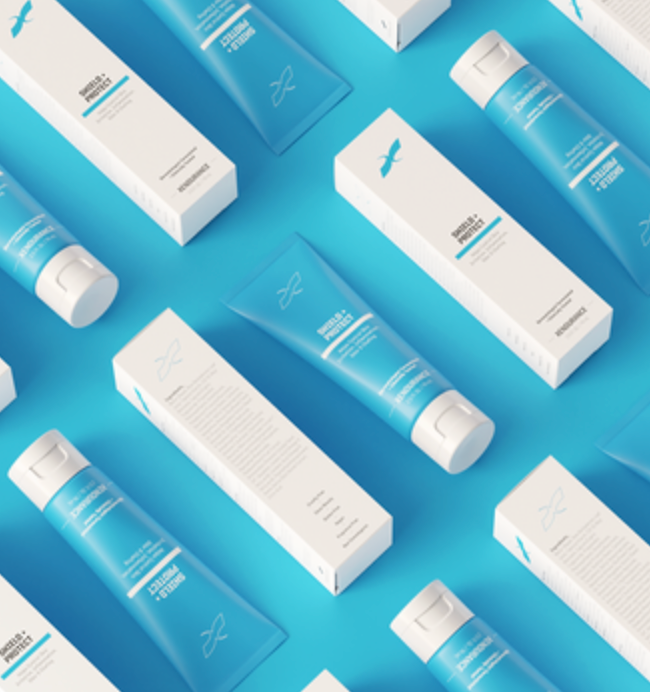In the ever-evolving world of skincare, the influx of information and products can be overwhelming. Amidst this, misconceptions about skincare ingredients and their safety are rampant, often leading to confusion and misguided choices. This blog aims to dispel some common myths and shed light on the truths of skincare ingredients and safety.
1. Misconception: "Natural" Means Safe and Effective
Reality: The term "natural" in skincare is often misunderstood. While natural ingredients can be beneficial, they are not always safe for every skin type. For example, some essential oils, though natural, can cause irritation or allergic reactions in sensitive skin types. Conversely, synthetic ingredients are not inherently harmful; many are well-researched for safety and efficacy.
2. Misconception: Chemicals Are Bad for Your Skin
Reality: Everything is a chemical, including water and oxygen. The fear of "chemicals" in skincare products is often based on misinformation. Many chemicals, such as hyaluronic acid or glycolic acid, are beneficial and safe for the skin. It's more important to understand the role and safety of each ingredient rather than fear them because they are labeled as chemicals.
3. Misconception: Preservatives in Skincare are Harmful
Reality: Preservatives are crucial for preventing skincare products from becoming breeding grounds for bacteria and mold. While some preservatives have been controversial, such as parabens, most used in skincare are tested for safety and are present in very low, non-harmful concentrations. Avoiding preservatives altogether can pose a greater risk to skin health.
4. Misconception: Higher Concentration Means Better Results
Reality: More isn't always better in skincare. High concentrations of certain ingredients, like retinoids or acids, can lead to irritation, sensitivity, and skin damage. Effective skincare is about using the right concentration that delivers benefits without causing harm.
5. Misconception: Sunscreen Chemicals Are Unsafe
Reality: Concerns about the safety of certain sunscreen chemicals, like oxybenzone, have led to misconceptions. However, the consensus among dermatologists and health organizations is that the benefits of using sunscreen far outweigh any potential risks. Mineral sunscreens are available as alternatives for those who prefer to avoid certain chemicals.
6. Misconception: If It Stings, It’s Working
Reality: A common belief is that a stinging sensation means a skincare product is effective. In reality, stinging or burning can be signs of irritation or an allergic reaction. Skincare should generally be soothing and non-irritating; any persistent discomfort is a sign to stop using the product.
7. Misconception: Hypoallergenic Products are Safe for Everyone
Reality: "Hypoallergenic" suggests a lower risk of allergic reactions, but it's not a guarantee. These products can still contain ingredients that some individuals are sensitive to. It's important to know your skin and its sensitivities, regardless of a product's labeling.
8. Misconception: Alcohol in Skincare is Always Bad
Reality: While certain types of alcohol, like denatured alcohol, can be drying and irritating, not all alcohols are bad. Fatty alcohols, such as cetyl or stearyl alcohol, are actually beneficial as emollients and stabilizers in skincare formulations.
9. Misconception: Fragrance-Free Products are Unscented
Reality: "Fragrance-free" means no artificial fragrances are added, but the product might still have a scent from its natural ingredients. Unscented products, on the other hand, may contain masking fragrances to cover up the natural scent of ingredients.
10. Misconception: Expensive Skincare is Better
Reality: Price does not always equate to quality in skincare. Some expensive products may offer luxurious experiences or rare ingredients, but effective skincare can also be found at more affordable prices. Key is the formulation and how it interacts with your skin.
Navigating Dermatological Jargon in Skincare: Why It Matters
The skincare market is flooded with products boasting various endorsements by dermatologists. But what do these endorsements actually mean? Let's demystify the terms "Dermatologist Tested," "Dermatologist Approved," and "Dermatologist Formulated," and emphasize the importance of products genuinely formulated by dermatologists.
1. Dermatologist Tested: A Basic Assurance
What It Means: "Dermatologist Tested" indicates that the product has been tested under the supervision of a dermatologist. This testing is usually focused on ensuring that the product doesn’t cause adverse reactions like irritation or allergies.
Limitation: This label doesn't necessarily mean that the product is effective for every skin type or condition. It merely indicates that it's unlikely to cause harm under controlled testing conditions. It also doesn’t provide the number of patients or duration of testing. For example; The dermatologist may have tested the skincare on only ONE patient.
2. Dermatologist Approved: A Step Further
What It Means: When a product is "Dermatologist Approved," it implies that a dermatologist has reviewed it and considers it safe and potentially effective for its intended use.
Limitation: However, this term doesn’t mean that the product has been rigorously tested or that the approving dermatologist has any direct involvement in its formulation. It may be that the dermatologist has scanned the ingredients and saw nothing harmful.
3. Dermatologist Formulated: The Gold Standard
What It Means: "Dermatologist Formulated" signifies that a dermatologist, or a team of dermatologists, has been directly involved in creating the product. This involvement typically includes selecting ingredients, developing the formula, and overseeing the production process.
Importance: This is where the real value lies. Dermatologists have an in-depth understanding of skin biology, common skin conditions, and how various ingredients interact with the skin. Their expertise is crucial in developing products that are not only safe but also effective for a wide range of skin concerns.
Why Dermatologist Formulation Matters
- Expertise in Skin Health: Dermatologists bring years of medical training and experience in skin health, ensuring that products address specific skin concerns scientifically.
- Balanced Formulations: They can create balanced formulas that combine efficacy with safety, minimizing the risk of irritation while maximizing benefits.
- Innovative Solutions: Dermatologist involvement often leads to innovative solutions for challenging skin issues, integrating the latest research and advancements in skincare.
- Customization for Skin Types: They understand the nuances of different skin types and conditions, allowing them to formulate products that cater to a diverse range of needs.
- Trust and Credibility: Products formulated by dermatologists carry a level of trust and credibility, providing confidence to consumers about the quality and effectiveness of the product.
In the realm of skincare, the involvement of dermatologists in product formulation is a key factor that can significantly elevate the quality and effectiveness of the products. While terms like "Dermatologist Tested" and "Dermatologist Approved" offer a certain level of assurance, "Dermatologist Formulated" stands as a testament to professional expertise and commitment to skin health. As consumers, it's important to recognize and value the distinction, choosing products that are not just marketed with dermatological terms but are genuinely rooted in dermatological science.

How Can You Educate Yourself On Ingredients And Safety in Skincare?
Educating yourself about the safety of skincare products is essential for ensuring that you make informed and healthy choices for your skin. Here are some strategies to enhance your knowledge in this area:
1. Understand Ingredient Labels
- Learn to Read Labels: Familiarize yourself with common ingredients found in skincare products. Understanding what each ingredient does can help you determine if a product is suitable for your skin type and concerns.
- Research Unfamiliar Ingredients: Use reliable online resources like the Environmental Working Group's (EWG) Skin Deep database or the Cosmetic Ingredient Review (CIR) to research unfamiliar ingredients and their safety profiles.
2. Follow Reputable Sources
- Dermatological Websites and Journals: Websites of dermatological associations or peer-reviewed journals are excellent sources for accurate information.
- Trusted Beauty and Health Blogs: Follow blogs or social media accounts of trusted dermatologists or skincare experts.
3. Stay Updated on Regulatory Guidelines
- FDA Regulations and Advisories: The U.S. Food and Drug Administration (FDA) provides guidelines and advisories on skincare ingredients and products. Regularly checking their updates can keep you informed about safety concerns or product recalls.
- Global Standards: Consider looking into skincare regulations in other countries, as they can sometimes offer different perspectives and guidelines.
4. Consult Professionals
- Dermatologists: Schedule regular appointments with a dermatologist, especially if you have specific skin concerns. They can provide personalized advice based on your skin type and condition.
- Pharmacists: Pharmacists can also be a good resource for understanding product formulations and potential side effects.
5. Educate Yourself on Skincare Myths
- Myth-Busting: There are many myths in skincare. Educating yourself on these can prevent you from falling for marketing hype or misinformation.
- Critical Thinking: Learn to critically analyze marketing claims and understand that not all "dermatologist-tested" or "natural" labels guarantee safety or effectiveness.
6. Test Products Carefully
- Patch Testing: Always perform a patch test before using a new product extensively to check for allergic reactions or irritations.
- Introduce New Products Gradually: Incorporate new products into your routine one at a time, which can help isolate any products that cause adverse reactions.
7. Keep Up with Scientific Research
- Read Scientific Studies: Look for studies related to skincare ingredients and their effects. Websites like PubMed offer access to a wide range of scientific literature.
8. Be Wary of Fads and Trends
- Trend Analysis: Be cautious of trends and new "miracle" ingredients. They may not have enough research backing their safety and efficacy.
In Conclusion: Navigating Skincare with Confidence
Grasping the nuances of skincare ingredients and their impacts is crucial for adeptly maneuvering through the intricate beauty and personal care landscape. It's imperative to engage in thorough research, comprehend your unique skin type, and crucially, compare the insights of a dermatologist. Seeking advice from a dermatologist, especially when it comes to understanding the distinction between 'Dermatologist Tested,' 'Dermatologist Approved,' and 'Dermatologist Formulated' products, can greatly enhance your knowledge and decision-making in skincare safety. This proactive approach, coupled with debunking prevalent misconceptions, paves the way for a more informed, effective, and dermatologically sound skincare regimen.









Leave a comment
This site is protected by hCaptcha and the hCaptcha Privacy Policy and Terms of Service apply.